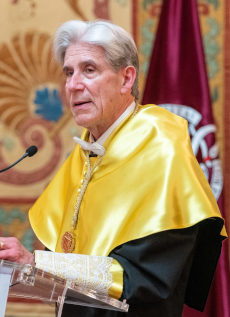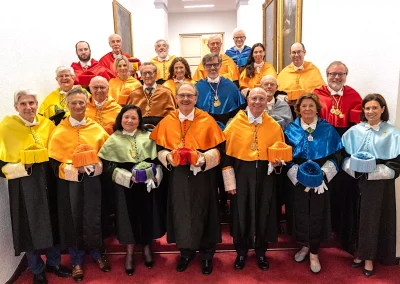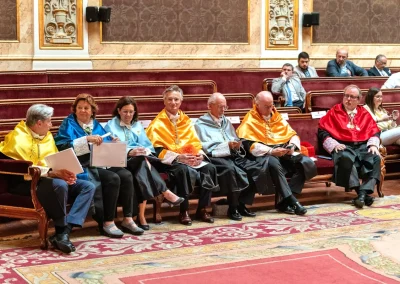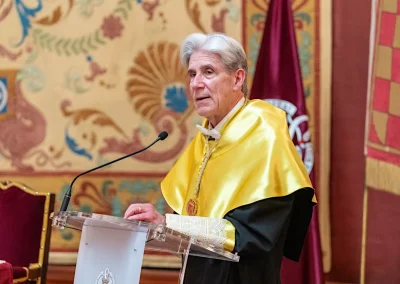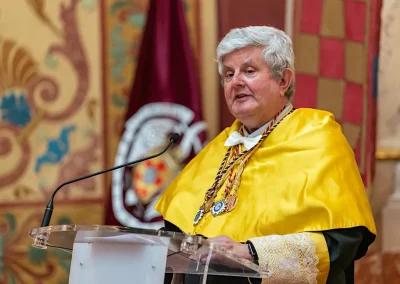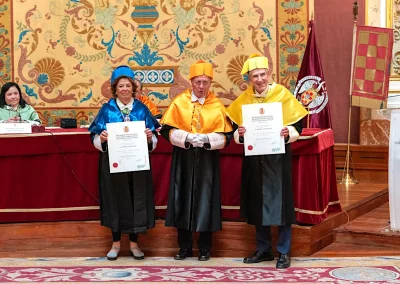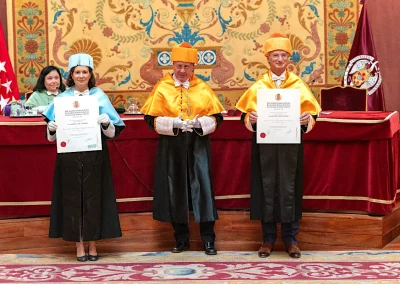Honorary Academician
Health Sciences: Doctor of Medicine and Doctor of Sociology
Date of admission: June 28, 2023
Admission speech: «Health and Higher Education: Transitions and Revolutions»
Reply speech: Hon. Dr. José Ramón Calvo Fernández, Doctor of Medicine and Surgery
Outstanding career: Former President of the University of Miami and former Minister of Health of Mexico (2000–2006), recognized for leading a comprehensive reform of the Mexican healthcare system and for his international leadership in global health, equity, and medical education.
Dr. JULIO FRENK MORA
- Born in Mexico City in December 1953.
UNIVERSITY EDUCATION
- Medical Doctor, National Autonomous University of Mexico (UNAM), 1979.
- Master of Public Health, University of Michigan, 1981.
- Master of Sociology, University of Michigan, 1982.
- Doctorate in Medical Care Organization and Sociology, University of Michigan, 1983.
TEACHING AND PROFESSIONAL ACTIVITY
- Founding Director of the National Institute of Public Health of Mexico.
- Renowned researcher on globalization and health, demographic and epidemiological transitions, and health systems.
- Executive Vice President of the Mexican Health Foundation (1995–1998).
- Executive Director for Evidence and Information for Policy at the World Health Organization, Geneva (1988–2000).
- Minister of Health of Mexico (2000–2006), creator of the “Seguro Popular,” which expanded access to healthcare for more than 53 million people.
- Director of the Global Health Program at the Bill & Melinda Gates Foundation (2007–2008).
- Executive President of the Carso Health Institute (2007–2008).
- Dean of the Harvard T.H. Chan School of Public Health, Harvard University (2009–2015).
- President of the University of Miami since 2015 and Full Professor of Public Health Sciences at its Miller School of Medicine.
PUBLICATIONS
- Author of 23 books, 15 monographs, 77 book chapters, 161 academic articles, and 127 essays in cultural journals and newspapers.
- His academic work has been cited more than 12,800 times.
- He is also the author of four children’s and youth novels about the human body.
AWARDS AND HONOURS
- Honorary Doctorates from the University of Alberta (Canada), University of Geneva (Switzerland), and University of York (Canada).
- Clinton Foundation Global Citizen Award (2008).
- Edward A. Bouchet Medal for Leadership and Diversity in Higher Education, Yale University.
- Member of El Colegio Nacional de México since 2017.

